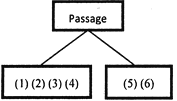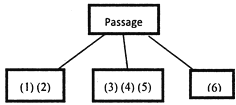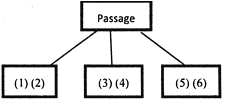-
Being mistreated at work can out their negative emotions on loved ones at home. But a new study suggests that getting more exercise and sleep may help people better cope with them by leaving them at work where they belong.
Previous research shows that employees who are looked down on or insulted by colleagues are likely to go express their frustrations and behave angrily toward people outside of work, says study co-author Shannon Taylor, a management professor at the University of Central Florida’s College of Business.
The new study backs up this idea, but offers a bit of good news as well: Employees who averaged more than 10,500 steps a day or burned at least 2, 100 calories were less likely to mistreat their cohabitants than those who averaged fewer steps of burned fewer calories.
The findings also revealed that when employees felt they had a bad night’s sleep because of work issues, they were more likely to be grouchy at home. “When you’re tired, you’re either less able or less motivated to regulate yourself”, says co-author Larissa Barber, a professor of psychology at Northern Illinois University.
Physical activity seems to counterbalance poor sleepy, Barber says, because it promotes healthy brain functions needed to properly regulate emotions and behaviors. “This study suggests that high amounts of exercise can be at least one way to improve the situations brought by sleep troubles that lead to negative behaviors at home,” she says.
Barber acknowledges that finding time to work out and get a full night’s sleep can be difficult when work pressure is mounting, and that often, job stress can be directly related to sleep quality. But she says making the effort to burn some extra calories and blow off some steam can be worth it. “It’s not only good for you”, says Taylor, but it can benefit the people you live with as well.
1.What does the underlined word “they” in Paragraph l refer to?
A. Loved people at home. B. Negative emotions.
C. Different work pressures. D. More exercise and sleep.
2.Who will most probably behave angrily to family members?
A. A person who always is easy to get tired.
B. A person who often goes to the gym to work out.
C. A person who often argues with colleagues.
D. A person who is always treated badly by coworkers.
3.The underlined word “counterbalance” in Paragraph 5 is closest in meaning to “________”.
A. make use of B. take control of C. make up for D. keep up with
4.What can we learn from the text?
A. Work pressure makes no difference in sleep quality.
B. How to burn more calories has become a major issue for workers.
C. Enough exercise can replace good sleep in dealing with negative behaviors.
D. The amount of calories employees burn affects the frequency of losing temper.
高三英语阅读理解中等难度题查看答案及解析
-
The negative health effects of being economical on sleep during the week can't be reversed by marathon weekend sleep sessions, according to a new study.
Researchers have long known that routine sleep lack can cause weight gain and increase other health risks,including diabetes. But those who force themselves out of bed sleepy each weekday after too few hours of shut-eyed, hope that shutting off the alarm on Saturday and Sunday will repay the weekly sleep debt and compensate any ill effects.
The research, published in Current Biology, crushes those hopes. Despite complete freedom to sleep in and nap during a weekend recovery period, participants in a sleep laboratory who were limited to five hours of sleep on weekdays gained nearly three pounds over two weeks and experienced metabolic disruption (新陈代谢紊乱)that would increase their risk for diabetes over the long term. While weekend recovery sleep had some benefits after a single week of insufficient sleep, those gains were wiped out when people plunged back into their same sleep-deprived (剥夺) schedule the next Monday.
"If there are benefits of catch-up sleep, they're gone when you go back to your routine. It's very short-lived," said Kenneth Wright, director of the sleep and chronobiology laboratory at the University of Colorado, who oversaw the work. "It's kind of like smoking once was — people would smoke and wouldn't see an immediate effect on their health, but people will say now that smoking is not a healthy lifestyle choice. I think sleep is in the early stage of where smoking used to be. ”
Michael Grandner , director of the sleep and health research program said that the study reinforces the concept that people need to stop thinking of sleep as a balance sheet. Imagine a person who ate nothing but cheeseburgers and french-fries Monday through Friday, but dined only on celery and kale on the weekend and tried to call that a healthy diet. Hugely cutting calories all week and then eating a giant pizza on Saturday wouldn't restore balance either.
1.According to the passage what is the possible result of lack of sleep?
A.Weight loss in a long run.
B.Higher risks of diabetes.
C.Being too weak to marathon.
D.Dying a premature death.
2.What does Wright want to show about catch-up sleep by mentioning smoking?
A.The influence is long-term.
B.The benefits are subtle.
C.The consequence is overlooked.
D.The immediate effects are obvious.
3.Those who favor weekend recovery sleep are likely to believe that______.
A.junk food can be balanced by occasional healthy diets
B.cheeseburgers and french-fries are healthy diets
C.celery and kale are healthy if eaten on the weekend
D.Saturday pizzas are very helpful to gain weight
4.The passage is intended to______.
A.deny a previous concept B.introduce a new study
C.promote a healthy lifestyle D.compare two studies
高三英语阅读理解中等难度题查看答案及解析
-
Many parents worry that showing negative emotions in front of their children will cause them to suffer. For example, children may end up thinking it's their fault or simply "catch" the emotion. Indeed, this worry has a sound basis — the phenomenon of “emotional contagion"(情绪感染)is real, and one recent study found that parents can transfer their fear of going to the dentist, for example, to their children.
On the other hand, there is the natural idea that we should “be real" with our children, and that they will benefit from watching a parent who struggles and eventually deals with their negative emotions like any other human being.
There are three concepts to consider when it comes to emotional display in front of children: suppression (压抑),"uncontained" expression, and talking about emotions. Suppression of emotion is when you hide the outward signs of an emotion. Unfortunately, it doesn't work very well — the act of suppressing your emotion actually increases your blood pressure. Observers can pick up on your distress despite your efforts to hide it, making them feel stressed. The recent research has also found that when parents feel negative emotions and keep them from their children, they experience lower relationship quality and decreased responsiveness to their child's needs.
On the other hand, “uncontained" expression of anger and sadness by the parent is also not salutary for the child. Uncontained means high intensity emotion, with no attempts to regulate or take ownership of it. Shouting, smashing (摔)things and blaming someone else for "making you angry" are all example of this .
So, what is the middle ground? That would be talking about emotion taking ownership of them and showing your child that you are trying to deal with them. Classic research found that six-year-old kids had better emotional understanding and perspective-taking skills if their mothers had talked to them about their emotions at the age of three. In fact, the more the mothers had talked, the better the outcome would be.
So next time you feel sad, angry or frustrated and your child is watching you expressing emotion, do explain what's going on in terms they can understand.
1.The author uses the example of going to the dentist mainly to _______.
A.explain parents' common fear
B.introduce the topic of negative emotions
C.show children may catch parents' emotions
D.present the consequences of transferring negative emotions
2.If a mother suppresses ((压抑))her emotions, .
A.she will not make her kids feel stressed
B.she can hide her emotions from her kids
C.she will often shout at her kids for no reasons
D.she can't respond effectively to her kids' needs
3.What does the underlined word "salutary" in Paragraph 4 probably mean?
A.Enough. B.Beneficial.
C.Necessary. D.Reliable.
4.What is the author's intention of writing this text?
A.To encourage parents to "be real" with our children.
B.To call on parents to develop a positive attitude to life.
C.To inform parents of the consequences of negative emotions.
D.To recommend parents to talk about negative emotions with children.
5.What's the structure of the text?
A.
 B.
B.
C.
 D.
D.
高三英语阅读理解困难题查看答案及解析
-
Pet owners are being encouraged to take their animals to work , a move scientists say can be
god for productivity , workplace morale (士气), and the well-being of animals .
A study found that 25% of Australian women would like to keep an office pet . Sue Chaseling of Petcare information Service said the practice of keeping office pets was good both for the people and the pets . “On the pets’ side , they are not left on their own and won’t feel lonely and unhappy,” she said . A study of major US companies showed that 73% found office pets beneficial (有益的) , while 27% experienced a drop in absenteeism (缺勤).
Xarni Riggs has two cats walking around her Global Hair Salon in Paddington . “My customers love them . they are their favorites ,” she said . “They are not troublesome . They know when to go and have a sleep in the sun .”
Little black BJ has spent nearly all his two years “working” at Punch Gallery in Balmain . Owner Iain Powell said he had had cats at the gallery for 15 years . “BJ often lies in the shop window and people walking past tap on the glass ,” he said .
Ms Chaseling said cats were popular in service industries because they enabled a point of conversation . But she said owners had to make sure both their co-workers and the cats were comfortable .
1.The percentage of American companies that are in favor of keeping office pets is ________ .
A.73% B.27% C.25% D.15%
2.We know from the text that “BJ”________
A.works in the Global Hair Salon B.often greets the passers-by
C.likes to sleep in the sun D.is a two-year-old cat
3.The best title for this text would be ________ .
A.Pets Help Attract Customers B.Your Favorite Office Pets
C.Pets Join the Workforce D.Busy Life for Pets
高三英语阅读理解中等难度题查看答案及解析
-
Pet owners are being encouraged to take their animals to work , a move scientists say can be
god for productivity , workplace morale (士气), and the well-being of animals .
A study found that 25% of Australian women would like to keep an office pet . Sue Chaseling of Petcare information Service said the practice of keeping office pets was good both for the people and the pets . "On the pets' side , they are not left on their own and won't feel lonely and unhappy," she said . A study of major US companies showed that 73% found office pets beneficial (有益的) , while 27% experienced a drop in absenteeism (缺勤).
Xarni Riggs has two cats walking around her Global Hair Salon in Paddington . "My customers love them . they are their favorites ," she said . "They are not troublesome . They know when to go and have a sleep in the sun ."
Little black BJ has spent nearly all his two years "working" at Punch Gallery in Balmain . Owner Iain Powell said he had had cats at the gallery for 15 years . "BJ often lies in the shop window and people walking past tap on the glass ," he said .
Ms Chaseling said cats were popular in service industries because they enabled a point of conversation . But she said owners had to make sure both their co-workers and the cats were comfortable .
1.The percentage of American companies that are in favor of keeping office pets is________ .
A.73% B.27% C.25% D.15%
2.We know from the text that "BJ"________
A.works in the Global Hair Salon B.often greets the passers-by
C.likes to sleep in the sun D.is a two-year-old cat
3.The best title for this text would be .
A.Pets Help Attract Customers B.Your Favorite Office Pets
C.Pets Join the Workforce D.Busy Life for Pets
高三英语阅读理解困难题查看答案及解析
-
____ to complete the job on time, they set out to work immediately.
A. Being determined B. On having determined C. Determined D. To be determined
高三英语单项填空中等难度题查看答案及解析
-
Pet owners are being encouraged to take their animals to work , a move scientists say can be good for productivity , workplace morale (士气), and the well-being of animals .
A study found that 25% of Australian women would like to keep an office pet . Sue Chaseling of Petcare Information Service said the practice of keeping office pets was good both for the people and the pets . “On the pets’ side , they are not left on their own and won’t feel lonely and unhappy,” she said . A study of major US companies showed that 73% found office pets beneficial (有益的) , while 27% experienced a drop in absenteeism (缺勤).
Xarni Riggs has two cats walking around her Global Hair Salon in Paddington . “My customers love them. They are their favorites ,” she said . “They are not troublesome . They know when to go and have a sleep in the sun .”
Little black BJ has spent nearly all his two years “working” at Punch Gallery in Balmain . Owner Iain Powell said he had had cats at the gallery for 15 years . “BJ often lies in the shop window and people walking past tap on the glass ,” he said .
Ms Chaseling said cats were popular in service industries because they enabled a point of conversation . But she said owners had to make sure both their co-workers and the cats were comfortable .
1.The percentage of American companies that are in favor of keeping office pets is
A.73%
B.27%
C.25%
D.15%
2.We know from the text that “BJ”
A.works in the Global Hair Salon
B.often greets the passers-by
C.likes to sleep in the sun
D.is a two-year-old cat
3.The best title for this text would be .
A.Pets Help Attract Customers
B.Your Favorite Office Pets
C.Pets Join the Workforce
D.Busy Life for Pets
高三英语阅读理解中等难度题查看答案及解析
-
Pet owners are being encouraged to take their animals to work, a move scientists say can be good for productivity , workplace morale (士气), and the well-being of animals .
A study found that 25% of Australian women would like to keep an office pet. Sue Chaseling of Petcare information Service said the practice of keeping office pets was good both for the people and the pets. “On the pets’ side, they are not left on their own and won’t feel lonely and unhappy,” she said. A study of major US companies showed that 73% found office pets beneficial (有益的) , while 27% experienced a drop in absenteeism (缺勤).
Xarni Riggs has two cats walking around her Global Hair Salon in Paddington. “My customers love them. They are their favorites,” she said. “They are not troublesome. They know when to go and have a sleep in the sun.”
Little black BJ has spent nearly all his two years “working” at Punch Gallery in Balmain. Owner Iain Powell said he had had cats at the gallery for 15 years. “BJ often lies in the shop window and people walking past tap on the glass,” he said.
Ms Chaseling said cats were popular in service industries because they enabled a point of conversation. But she said owners had to make sure both their co-workers and the cats were comfortable.
1.The percentage of American companies that are in favor of keeping office pets is ________ .
A. 73% B. 27% C. 25% D. 15%
2.We know from the text that “BJ”________
A. works in the Global Hair Salon B. often greets the passers-by
C. likes to sleep in the sun D. is a two-year-old cat
3.The best title for this text would be ________ .
A. Pets Help Attract Customers B. Your Favorite Office Pets
C. Pets Join the Workforce D. Busy Life for Pets
高三英语阅读理解中等难度题查看答案及解析
-
— How are they getting on with their work?
— Everything goes well as ______.
A. to be planned B. being planned C. planned D. planning
高三英语单项填空中等难度题查看答案及解析
-
—May I go and play with Dick this afternoon,Mum?
—No,you can’t go out________your work is being done.
A.before B.until C.as D.the moment
高三英语单项填空中等难度题查看答案及解析